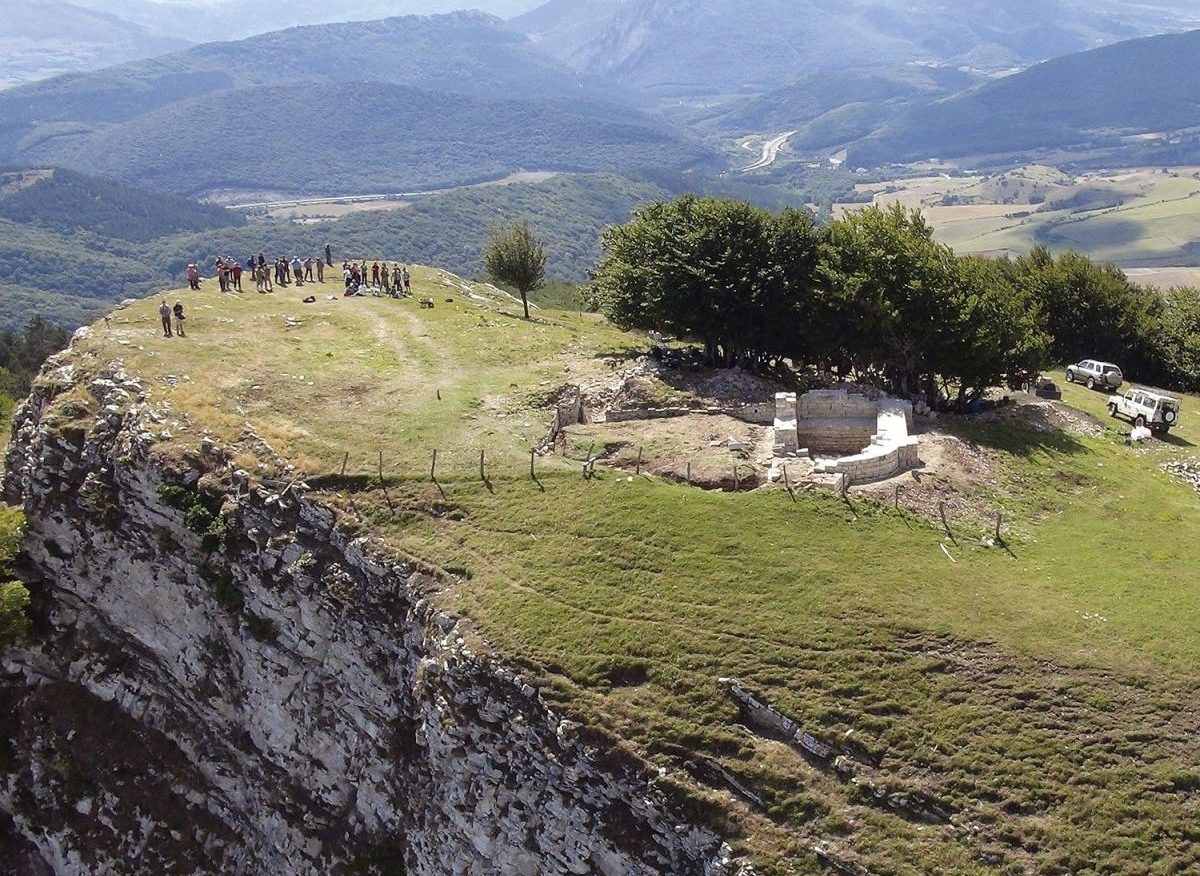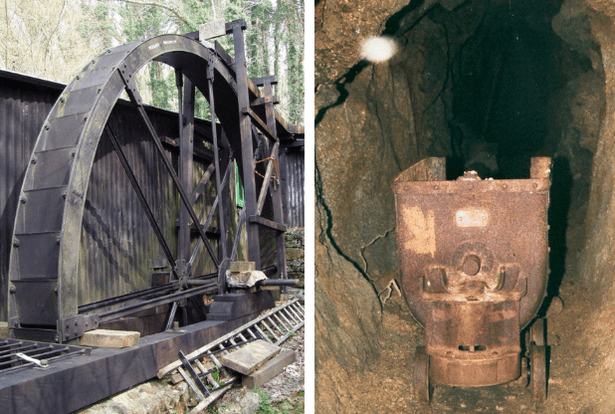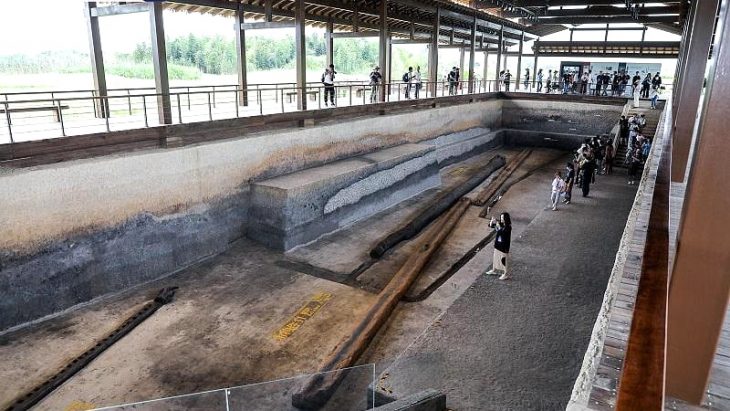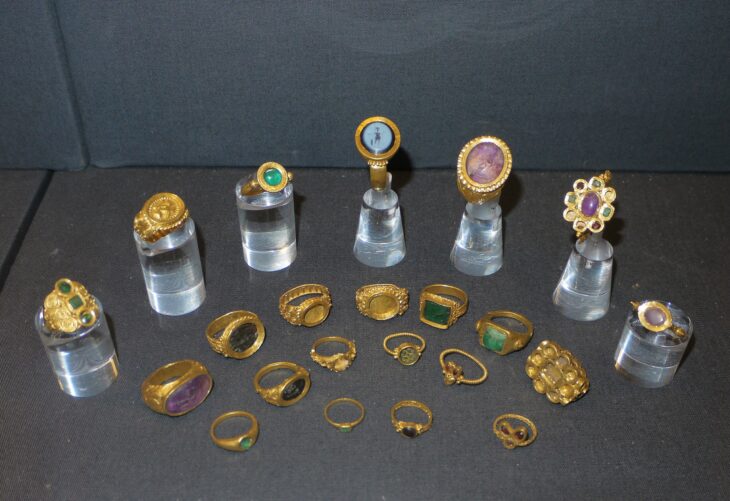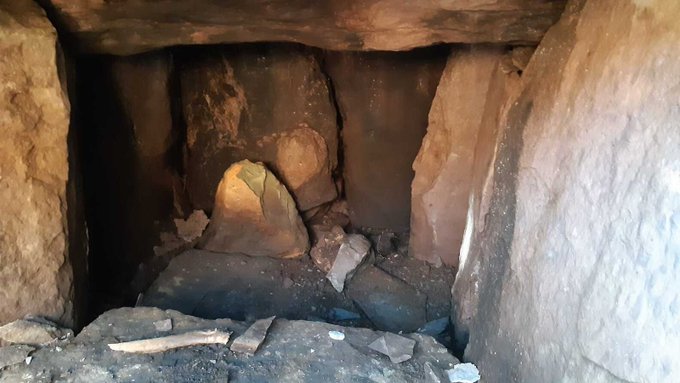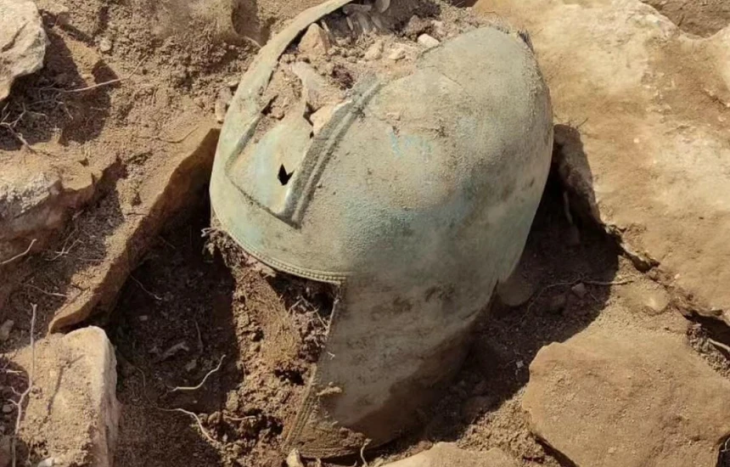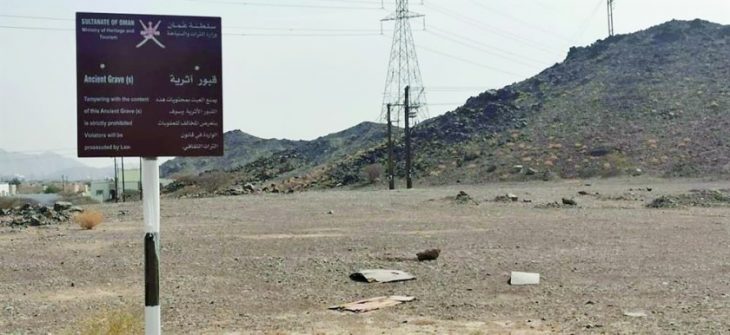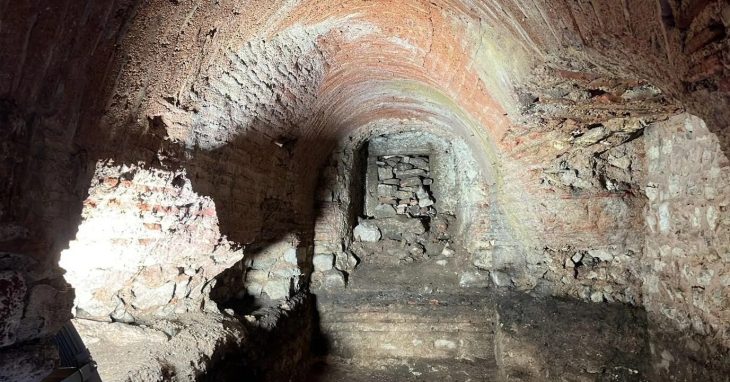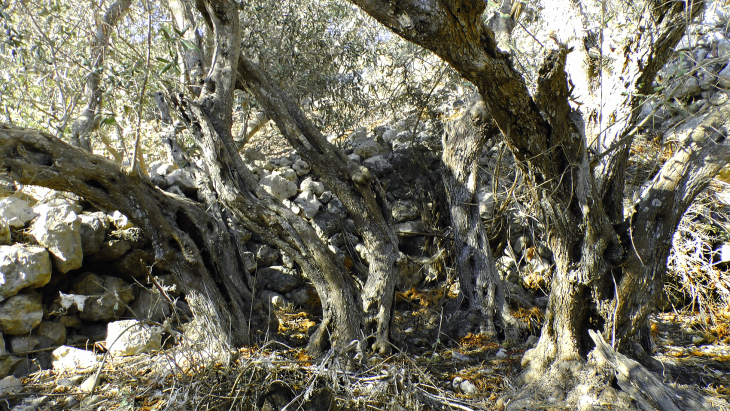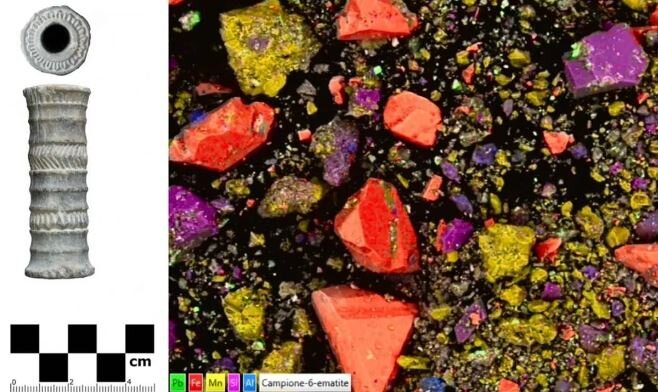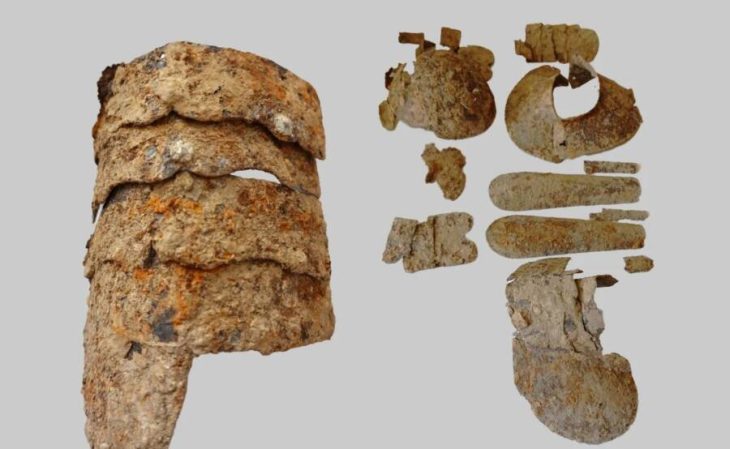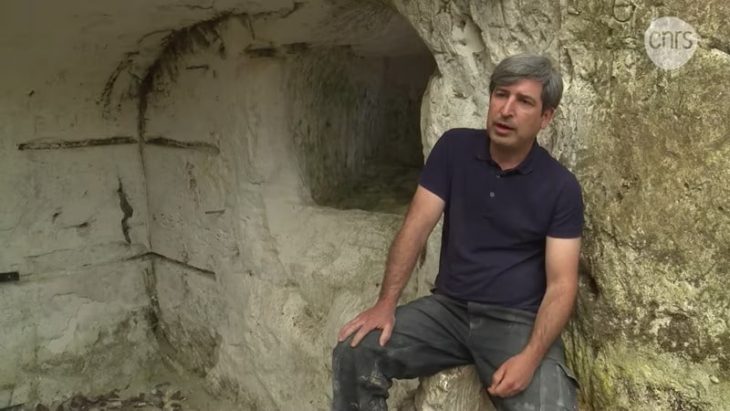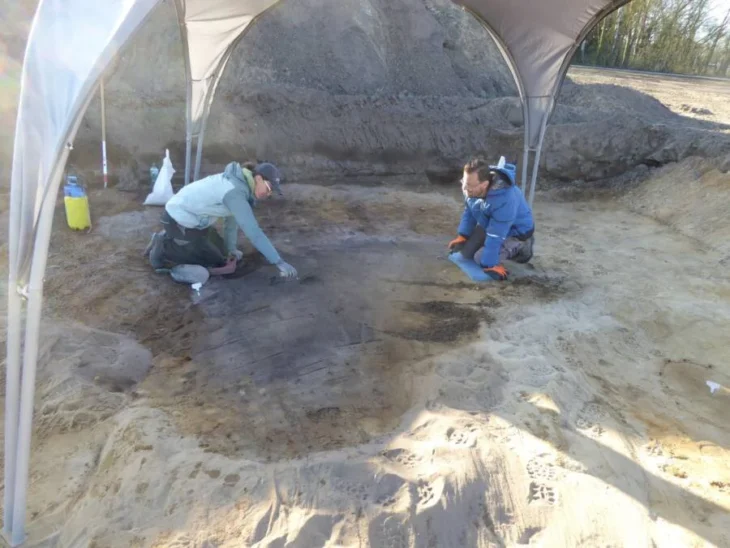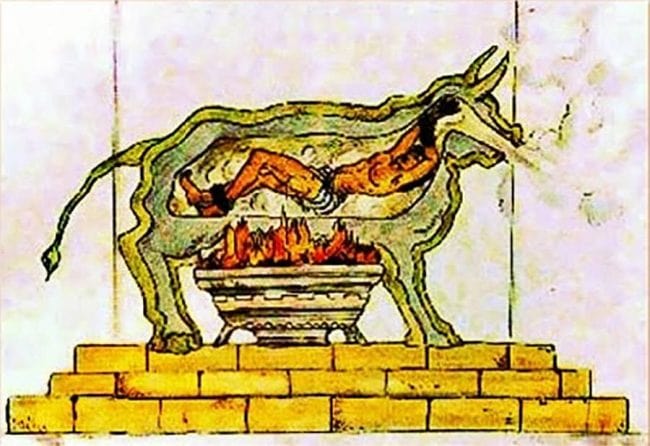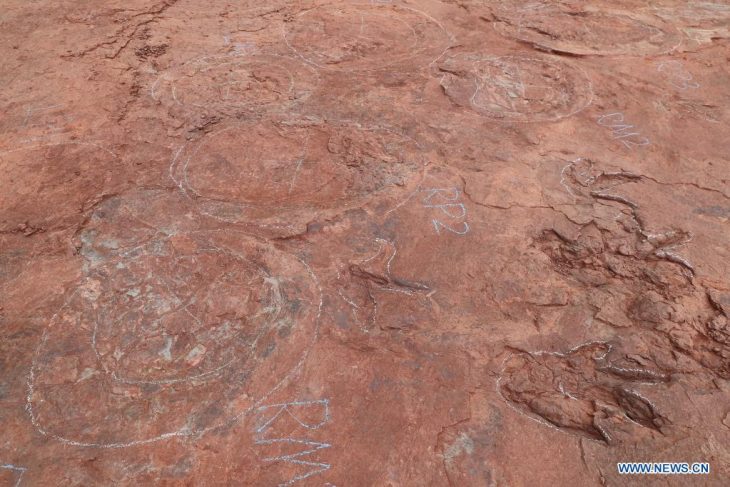Archaeologists have unearthed a Roman-era votive altar dedicated to the ancient Basque deity Larrahe at the medieval monastery of Doneztebe on Mount Arriaundi, northern Spain.
This artifact is one of four altars dedicated to Larrahe found in the Basque regions. The new altar, however, is the only one ever to be recovered during an archaeological excavation. This altar, dating to the 1st century CE, is a significant find for understanding the cultural and religious practices of the Vascones, the ancient inhabitants of the Basque region.
This discovery provides new insights into the early Basque people and their cultural beliefs.
Arriaundi was occupied from the Roman era through the Middle Ages and into the Modern era almost continuously. Mount Arriaundi is 3100 feet high and is situated in the Gulina River valley, five miles northwest of Pamplona, close to the small town of Larunbe. An unscalable promontory on the south side makes it easy to defend that prime viewing spot, which offers sweeping views of the Pamplona Basin from the summit.
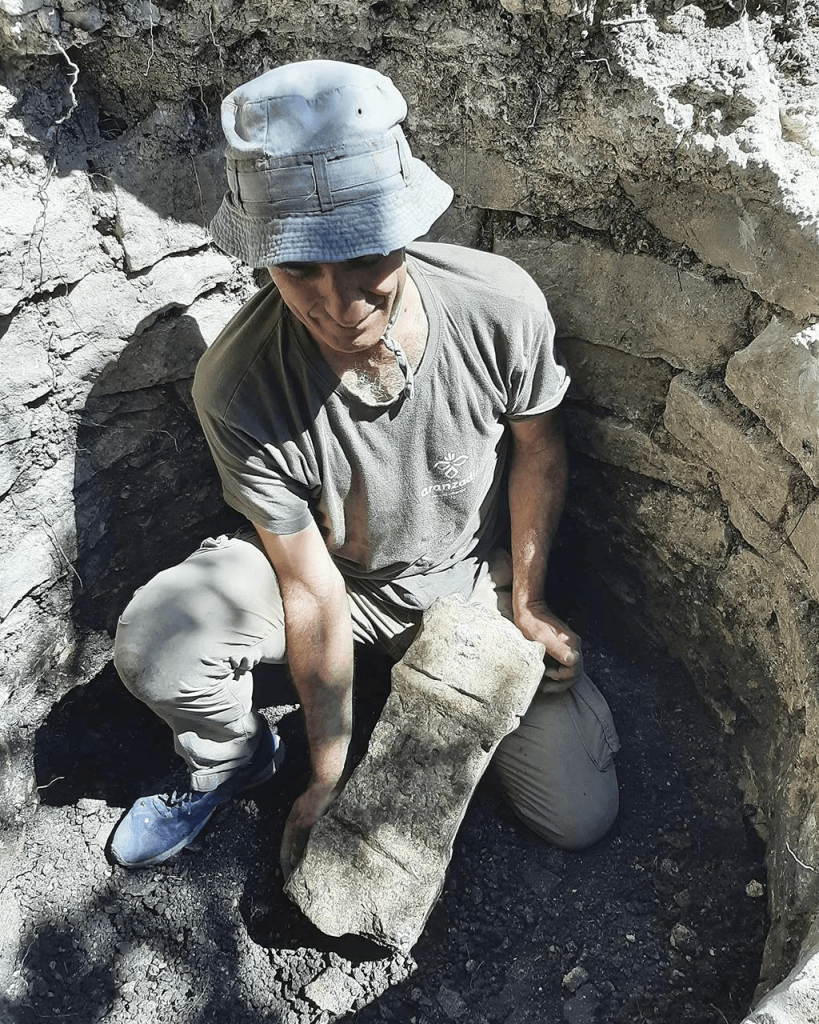
Since the Sertorian War in the first century B.C., there has been a Roman presence in the Pamplona Basin. The main roads for communication were constructed in the first century A.D. It was situated above a significant road that led to Pamplona starting in the Roman era, and in the eleventh century, a monastery honoring Saint Stephen was constructed there.
📣 Our WhatsApp channel is now LIVE! Stay up-to-date with the latest news and updates, just click here to follow us on WhatsApp and never miss a thing!!
To find the remnants of the medieval monastery whose location was lost to time, archaeologists and seasonal volunteers have been excavating the summit for ten years.
According to a press statement from the Aranzadi Science Society, the Basque altar was discovered during an excavation in 2022, at the bottom of a well at the medieval Doneztebe monastery. The small votive altar features a dedication written by a woman known as Valeria Vitella to the deity Larrahe.
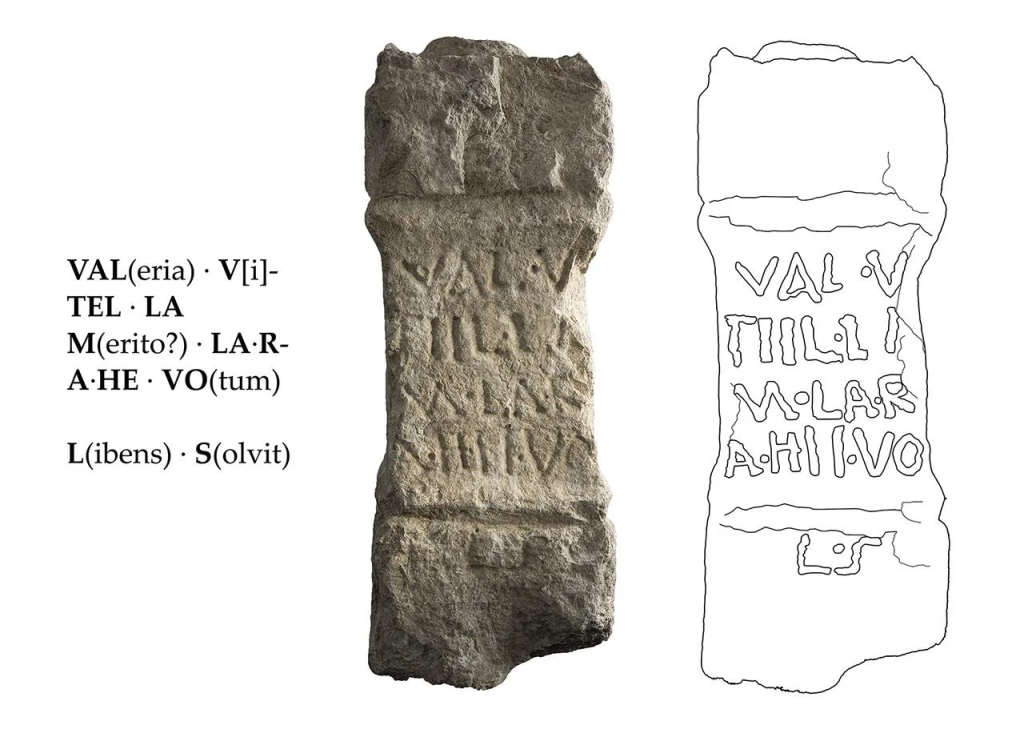
The inscription reads: VAL(eria) V[i]
TEL.LA
M(erito?) LA R
A HE VO(tum)
L(ibens) S(olvit)
This translates to “Valeria Vitella fulfills her vow to Larrahe freely and deservedly.”
The finding, according to researchers, shows how the distinctive culture of the Basques persisted even during the Roman era by combining elements of both Roman and Basque beliefs.
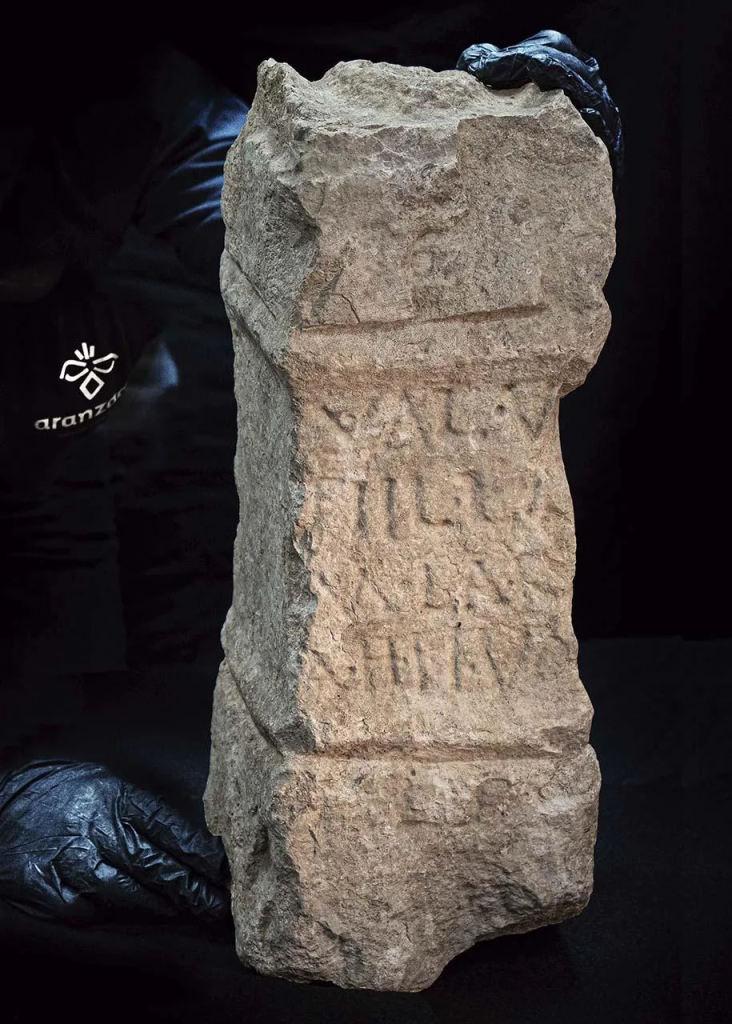
Little is known about Larrahe, as few other examples of worship to the deity have been discovered. “The name of this indigenous god or goddess is only attested in three other altars from the Basque territory,” researchers explained in the statement. However, this altar was found much further north than previous dedications to Larrahe, thus expanding the territorial domain of the deity’s worship.
The altar predates the monastery by about 1,000 years, and researchers don’t know how it ended up in the well. It is unclear if it was thrown in later or if it was intentionally positioned there when the well was built.
Cover Photo: Aranzadi Science Society

